Coronavirus: How charity shops are handling the nation's spring clean
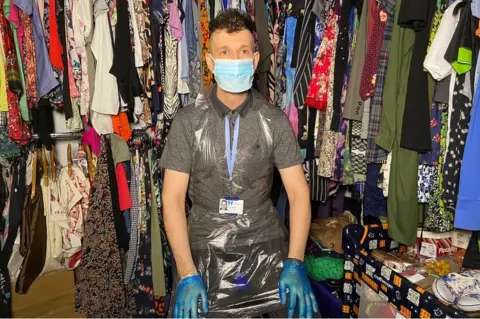 BBC
BBCThe coronavirus lockdown has led to a national spring clean of epic proportions, with people stuck at home preparing to donate their unwanted goods. What does this mean for the charity shops on the receiving end of the Covid clearout?
Tucked away on a small retail park on the edge of Shoeburyness, near Southend, Essex, is the Havens Hospices charity shop, brimming with colour and intrigue.
"We take anything," manager Eany Callahan says.
"Everything is money to us. We get money when we recycle, which is brilliant, so we don't say no to anything.
"I've had well over 100 calls in the past three days asking about donations and I've asked them to stagger them so we can cope."
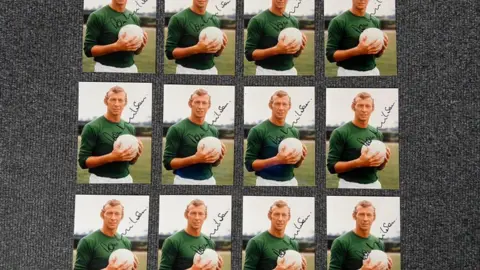 BBC
BBCBut the drop-off-and-sort system has had to change, though. All donations are quarantined for three days before sale.
You might also be interested in:
Mr Callahan says items are "processed, steamed and sprayed with disinfectant" before reaching the shop floor.
"We've had lots of different things, from bric-a-brac to clothing," he adds.
"We've had very vintage items such as handbags, puzzles, games and books.
"In one case, we had more than 40 signed photos of the same person and we even had a sword donated, which I nearly got in trouble with the police for."
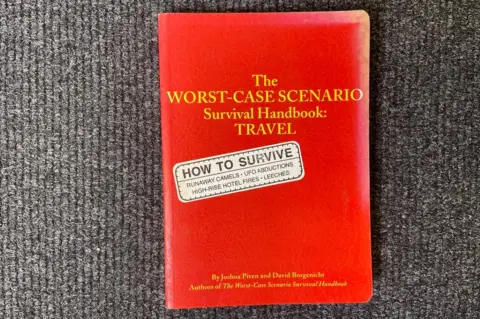 BBC
BBC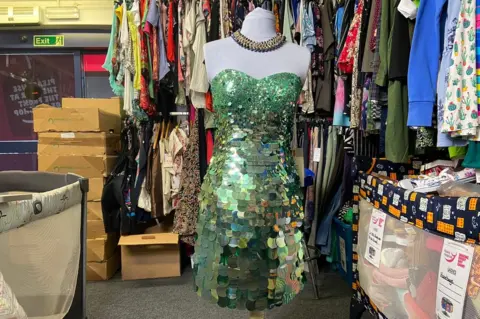 BBC
BBCAmong the packed racks and shelves is a new green sequinned dress, which will go on the hospice's eBay store.
The price tag is £220 for the "best dress in the shop". However, even if it was being sold in the shop, a potential buyer wouldn't be able to try it on as the fitting rooms are closed off.
There is also a limit on numbers, hand sanitizer for customers, a screen at the till and contactless payments."We are asking everybody coming into the shop just to act sensibly," Mr Callahan adds.
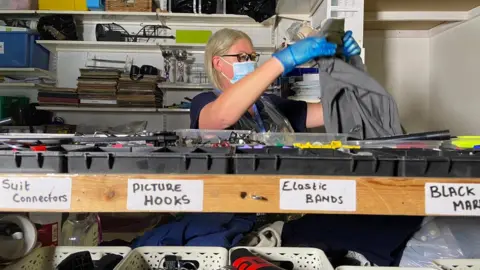 BBC
BBC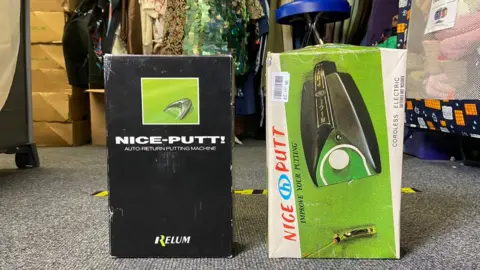 BBC
BBCThe store is one of 23 Havens Hospices shops, raising money for a charity that provides palliative and respite support for children, young people and adults across Essex.
Financially, the charity is "in a stable position until July, and then the future looks uncertain" - when it is expected to lose 70% of its fundraising income.
The Southend Half Marathon, which was cancelled on 14 June, would normally generate £200,000 alone.
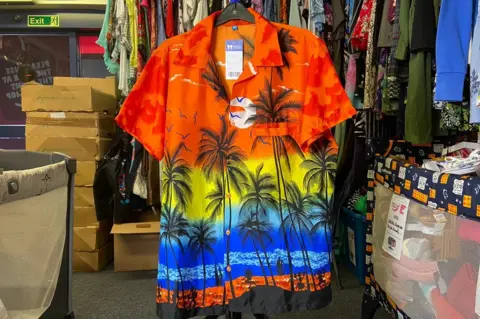 BBC
BBCThe charity's director of income generation, Trevor Johnson, said measures were in place "to let our managers, staff and shoppers feel safe".
"We wanted to be part of the community again and start raising funds but we could only do that if we had a proper plan.
But the lockdown has affected staffing levels, with older volunteers and those shielding unable to return, while others had "re-evaluated their priorities" and stepped down.
"It's not a case of losing 14 people and recruiting 14," he said.
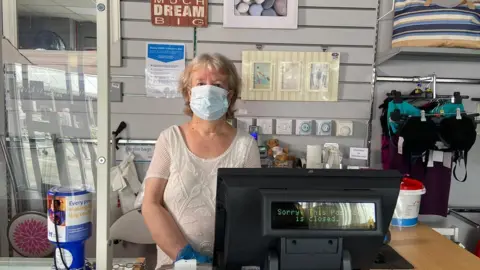 BBC
BBCMother-of-three Kim Shambrook has worked in the shop for three years - and is currently the only volunteer there.
"The changes are a bit of a nightmare but they have to be done to keep ourselves and our customers safe. It's a massive difference," she said.
"We were used to a shop-load of people now it's just five at a time. And people want to pay cash."
She said she hoped the new way of working wouldn't put shoppers off.
"Please come - we need you," she said.
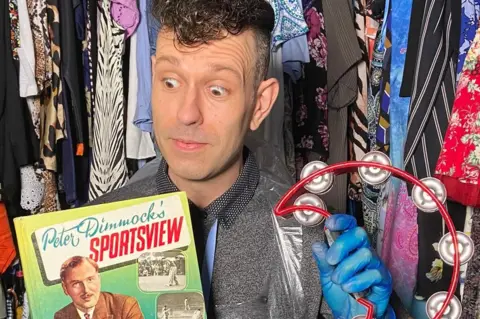 BBC
BBC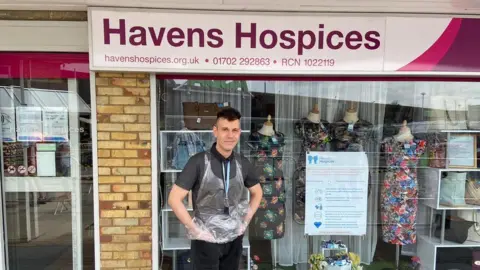 BBC
BBCMr Johnson said it was too early to say how much money the charity's shops had lost during the lockdown, but he had been encouraged by Monday's trading figures.
Charity shops need to adapt, he said, and this flexibility had become more important than ever.
"The pandemic has changed everything for everyone, but I do think there is still a place for charity shops as a social hub in the community."
 BBC
BBC- ENDGAME: How do we get out of this mess?
- 40,000 DEATHS: Could they have been prevented?
- FACE MASKS: When should you wear one?
- TESTING: Who can get a test and how?
 BBC
BBC
Find BBC News: East of England on Facebook, Instagram and Twitter. If you have a story suggestion email [email protected]
Photographs by Laurence Cawley
